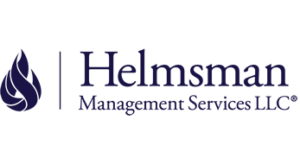
Late last year the Business Roundtable and the Human Resources Policy Association, along with other business advocacy groups representing large employers, sent letters to President Trump and Congress urging adoption of a national paid leave program. Both groups noted that while most large employers provide generous paid leave, there is a need for “economy-wide action” on this issue.
A growing number of large employers is increasingly supportive of federal action on the issue of paid family and medical leave for several reasons, including the belief that paid leave helps attract and retain talent in a tight labor market and recognition that the U.S. is an outlier among industrialized countries in not having uniform paid leave, a benefit more employees need and expect as work and family life dynamics continue to change.
Perhaps the main reason that employers – especially those operating nationally or in multiple states – are increasingly receptive to a federal paid leave program is the increasing cost and complexity of having to comply with a patchwork of conflicting mandatory state (and in some cases municipal) paid sick leave and/or paid family and medical leave programs.
Operating in all 50 states and 30 countries, Liberty has long offered generous paid leave benefits and prefers a uniform plan for all employees regardless of which state they reside or work in. That goal is increasingly difficult to attain as we are forced to comply with an ever-increasing number of differing state paid family and medical leave programs.
Congress has entertained numerous proposals since 1993 to expand FMLA to provide paid leave, but until recently there was no significant action other than enactment in December 2017 of the Strong Families Act, which included tax incentives to private-sector employers to offer paid family and medical leave to their employees voluntarily.
More recently, a paid leave compromise was enacted as part of the Defense Authorization Act for fiscal year 2020. That compromise will provide 12 weeks of paid parental leave to approximately 2.1 million federal and Congressional employees to care for a newly born or adopted child. Benefits begin in October 2020.
The chance of additional federal action should not be overstated, however. According to Chris Russell of the Liberty Mutual Government Affairs team, “Notwithstanding recent Congressional action on paid parental leave for federal employees, and the apparent appetite of the House to consider further action, there is little likelihood the Senate will expand paid family leave.”
Additionally, the Workforce Protections Subcommittee of the House Education and Labor Committee has also taken up the issue, although the focus of its initial hearing was on expansion of the unpaid FMLA program.
Among the proposals currently under consideration by Congress, which may be considered by the full House, are the following:
- New York Senator Kirsten Gillibrand has sponsored The Family Act to create a national social insurance program funded by a payroll tax which would provide cash benefits to eligible employees who are engaged in certain caregiving activities. This proposal seeks to make it feasible for those workers to take unpaid leave under the federal FMLA or unpaid leave voluntarily provided by employers. The Gillibrand proposal would offer new parents up to 12 weeks off at two-thirds of their monthly wages, financed by a 0.2 percent payroll tax paid by both employees and employers.
- A proposal by Senator Rubio of Florida to reform Social Security to allow workers to take up to three months of Social Security benefits in the form of “Earned Parental Leave” benefits after the arrival of a new child, in exchange for delaying retirement benefits
- A bipartisan bill sponsored by Senator Cassidy of Louisiana and Senator Sinema of Arizona to reform the Child Tax Credit to offer parents a benefit upon the arrival of a new child in exchange for reduced future tax credits
- A proposal by Senator Mike Lee of Utah to reform the Fair Labor Standards Act to give private-sector employees an option to accrue paid time off rather than time and a half for overtime hours worked
- The Freedom for Families Act sponsored by Representative Andy Biggs of Arizona to reform Health Savings Accounts (HSAs) to allow employees to use these savings vehicles to pay for family and medical leave
Conclusion
Although Congress continues to consider various PFML proposals, significant federal action is not considered likely in the short term.
Even if Congress were to mandate paid leave for private-sector employees, an ERISA-like pre-emption is also unlikely given that pre-emptions are not common in the employment law arena.
As a result, numerous states, will continue to explore and debate mandatory paid leave proposals in 2020. Among the states likely to give serious consideration to these proposals this year are Colorado, Vermont, New Hampshire, Wisconsin, Virginia, Minnesota, Maine, and New Mexico.
Large multijurisdictional employers must stay on top of these developments and through national and state business groups should advocate for ameliorating provisions like an exemption from state paid leave mandates for companies that already provide equivalent or comparable benefits; state exemption provisions which would block municipalities from enacting their own plans which conflict with state-mandated plans; and uniform definitions, standards, and rules consistent with the federal FMLA.
Featured insights
This website is general in nature and is provided as a courtesy to you. Information is accurate to the best of Helmsman Management Services’ knowledge, but companies and individuals should not rely on it to prevent and mitigate all risks as an explanation of coverage or benefits under a policy or service contract. Consult your professional advisor regarding your particular facts and circumstance. By citing external authorities or linking to other websites, Helmsman Management Services is not endorsing them.


